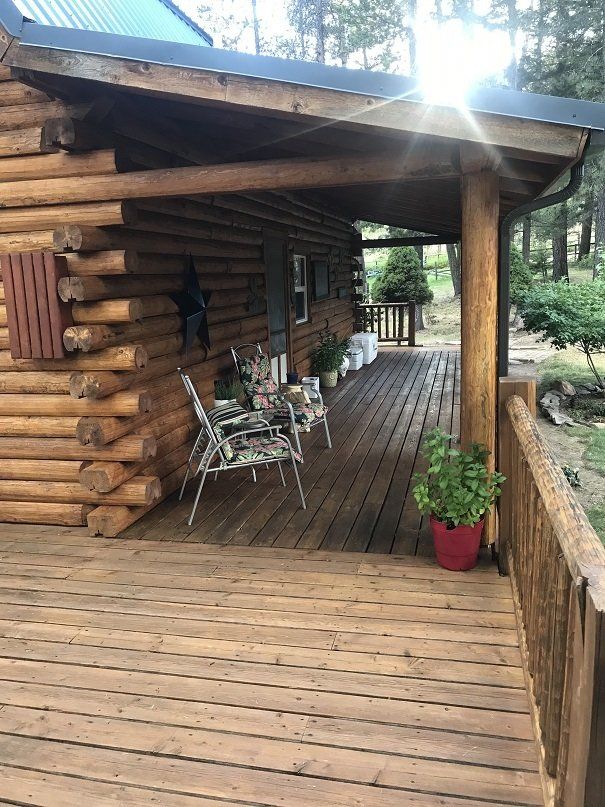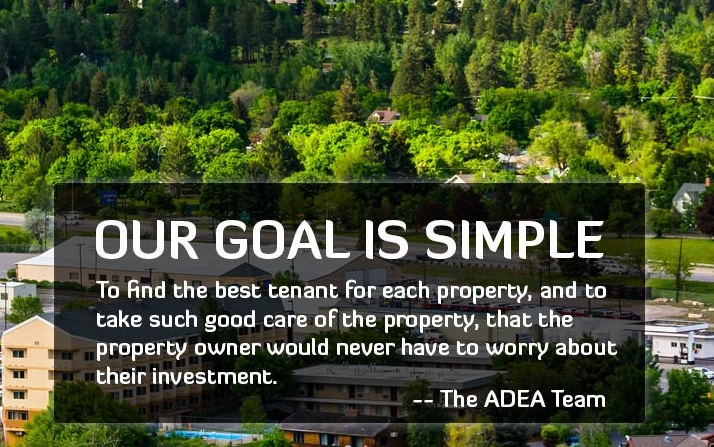How to Find A Property Manager You Can Trust
The right property manager can save you time, money, frustration, and worry. But how can you be sure that you’ve chosen the right one for you? At ADEA, we’re proud of how well we serve our clients, but we know that you’ll hear the same thing from any property manager you consider. We’d like you to choose us, but we’re even more serious about helping you find a property management company that fits your current needs and future goals.
Let’s look at four things that you can do to cut through the marketing and learn whether a given property manager is ready to deliver the reliability, service, and support you need.
Ask Around
If you know an owner or two of rental properties in your area, you might have spoken with them by now. If not, this is a good time to contact other owners to see who’s managing their properties and what they think of their experiences.
Even if you know a fellow owner or two, you can gain a much clearer understanding of the local property-management landscape by digging in an doing a little research of your own. Take some time to look for rental properties similar to yours, then check your County Assessor’s website to learn who owns them.
With just a few quick questions to people in your situation, you can go a long way toward weeding out property managers who might not work for you. If you need some help identifying rental properties, your city should have records of every property licensed as a rental.
Fees and Terms
Once you’ve shortened your list of potential property managers, sit down with each one of them for a quick informational interview. Some might try to sign you up right away, which is their right, but you shouldn’t be ready to commit at this stage. Instead, take notes on the fees charged by each PM company, the services they cover, and whether those terms are negotiable. Your notes should follow a consistent format to make comparisons easier once you’ve spoken with every property manager on your list.
Be sure to ask for a sample financial statement, just to be sure that it spells things out clearly and comprehensively. If you don’t have a tenant in place, ask how each property manager vets prospective leasers.
This is also a good time to ask a few worst-case questions. How does each property manager handle unpaid rents or unruly tenants? If tenants leave before their leases expire, how does the property manager respond? How are available properties listed, and what is the typical turnaround time from listing to signing?
History and Company Structure
In theory, anyone with a strong sense of responsibility and good people skills can learn what it takes to become a good property manager. In reality, you really do need someone with a bit of experience—or access to someone who does. More often than not, the difference shows up in the way your property manager handles your finances, not the property itself.
Even if you haven’t signed your first tenant, you know that owning a rental property isn’t a matter of just sitting back and watching the money roll in. You’ll have to dip into your reserves during lean months when repairs or late rent payments cut into your net proceeds, and you’ll make up for those months when things get back to normal. The same ups and downs affect your property manager.
Be sure that any property manager you consider has the financial reserves keep things rolling even when tenants fall on hard times (or just flake out), and the experience to insulate you a bit from those bumps in the road. That experience can be secondhand: a younger representative of an established property management company still has a lot of institutional resources to fall back on when things get rough. A highly experienced property manager striking out on their own and operating on a shoestring might be a bigger gamble.
Your Personal Goals
Finally, consider your own personal aims and ownership style. For some property owners, the perfect tenant is willing to pay above market value for a property that includes a lot of extra services like landscaping and snow removal. For others, the perfect tenant is a single parent who’s grateful to pay a bit below market value for a house they personally keep in good shape.
The tradeoffs go beyond monthly proceeds: you might make less each month from that single parent, but you’ll also increase your chances of having an excellent tenant for years and years. This is where your long-term strategy speaks directly to your relationship with your property manager. Don’t be afraid to discuss these matters with any PM company you interview.
In many ways, hiring a property manager is like signing a tenant. You wouldn’t hand the keys off to the first person who showed up at your doorstep with a pen in hand, and you shouldn’t rush into a binding agreement with a property manager, either. With a bit of legwork and some pointed questions, though, you can make sense of the options available to you. Good luck, and we hope to hear from you soon!











